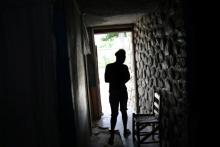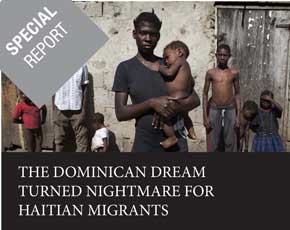Haitian Court Orders UN Peacekeeper to Pay Child Support in Landmark Case
There is a long history of peace-keeping operationa in Haiit - as well as a long history of peace-keepers exploting women and children. A Haitian court has ordered a former UN peacekeeper from Uruguay to pay child support to a women he impregnated in 2011. This case is a step towards justice for the mother and the child but it could also encourage more court cases nationally and globally. In Haiti alone, hundreds of children may have been fathered by UN peacekeepers. The full article by New Humanitarian Journalist Paisley Dodds follows.





